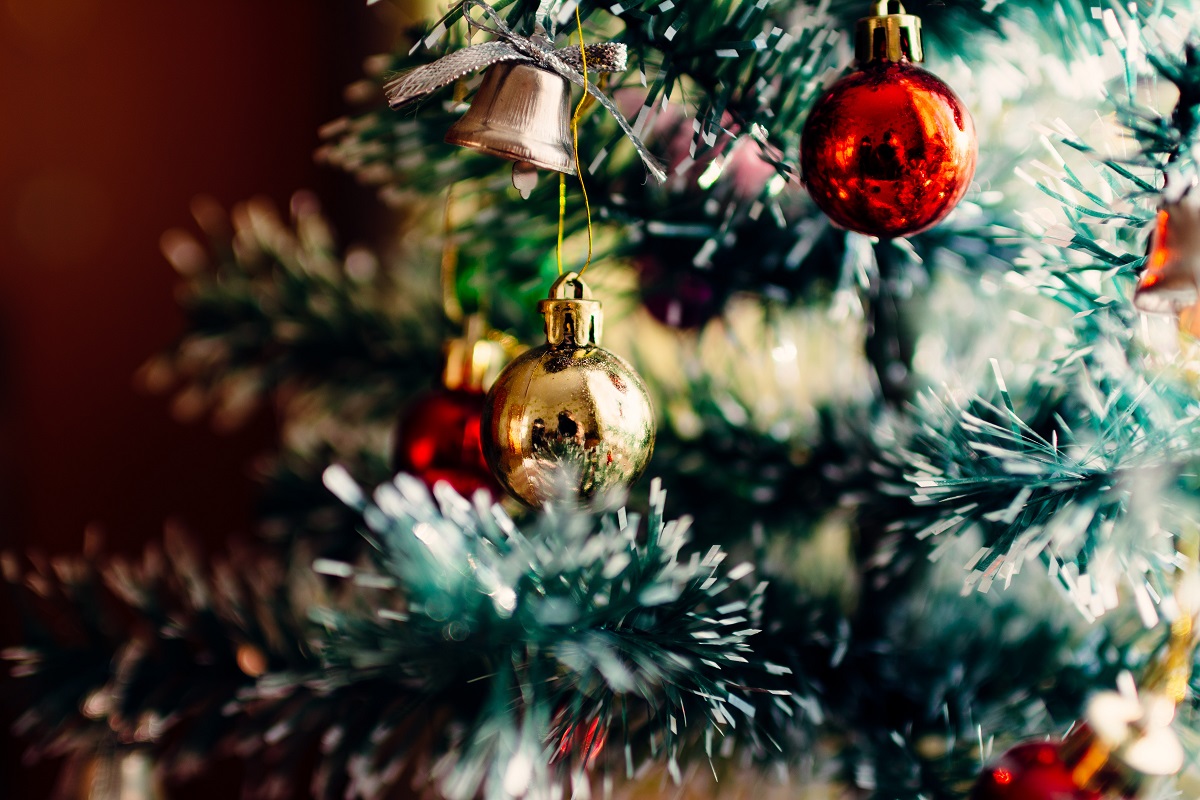With Christmas almost upon us, three Victoria and Tasmania UC members and three Uniting World members from overseas reflect on what the day means to them.
Rev Trang Vo, North Essendon Uniting Church
When asked what Christmas Day represents to me, the first thing that comes to mind is community, because, for me, Christmas is not a one-time experience, it’s more like, in a lifetime.
I remember how it was for me in Vietnam while growing up. Despite being in a neighbourhood with a relatively small Christian community, my family still celebrated Christmas.
Before Christmas Day, my family and I and other Christians would spend a lot of time at church decorating and practising programmes, such as choir and Christmas plays. The church was fully decorated with lighting, stars, and a nativity scene and by the time we reached Christmas Day, it was filled with people, Christians and non-Christians. For this reason, my understanding of Christmas celebration is about community as a whole.
Then, when my family was in a refugee camp in Malaysia, we still continued that tradition, although it was not the same. In the refugee camp, my family and I attended a tiny little church on a hill.
I remember there weren’t many things available in the church, but I will never forget an Australian missionary who was part of the Christian community. The missionary provided us with some goodies at Christmas, such as children’s books and lollies, and he taught us to sing children’s Christian songs. His acts of kindness till this day have helped me to reflect my own faith.
In my early years in Australia, things were not much different regarding Christmas. My family and relatives continued to participate in church ministry as we settled into a Vietnamese evangelical church in Footscray (the first Vietnamese church in Victoria).
And our lives continued to revolve around the church community. As our lives rotated around church ministries, we sometimes joke, “church is our first home, not our second home”. And when it was Christmas time, the festive atmosphere was visible everywhere, it included the churchyard being cleaned and decorated with Christmas trees, nativity scenes, and plenty of coloured lights.
Later, my family and I joined the Uniting Church in Footscray and it was an exciting time, especially when people could celebrate Christmas in a Vietnamese Christian way, in our own culture and tradition.
We gathered for the festive celebration on Christmas eve and as food brings people together, part of the church traditions in celebrating the anticipation of the arrival of the Lord meant each family would bring a tray of food to share.
Since the congregation was no longer gathering on Christmas Day, my family began to have family Christmas dinner at home, dinner which was a little different from the traditional western Christmas dinner.
Although we have honey and mustard glazed ham on the table, we also have authentic Vietnamese food like rice paper rolls.
My children were allowed to stay up until midnight on Christmas eve to open their gifts. Because we have spent a full day at church on Christmas eve, Christmas Day has become a family day and a Sabbath day, but that has changed a little in recent years as I am now in placement at a local congregation.
I pray that your Christmas be filled with joy, hope and peace, and may God’s richest blessings be upon you, your family, and your community (Emmanuel).

Gathering together in fellowship over food is one of the joys of Christmas.
Rev Dr Sean Winter, Pilgrim Theological College
Christmas celebrations are a pretty straightforward affair for us. Perhaps the first meaningful ritual for me is an early-morning visit to the Victoria Market on Christmas eve to stand six or seven rows deep, elbows out, getting fresh seafood.
Food is always a major focus of course, almost always shared with friends, either in Melbourne or up in Pipers Creek, Kyneton, where we usually spend the Christmas period.
The cooking has almost always fallen to me, but the menu changes depending on our mood and the weather. I come from the UK and sunshine, heat and blue skies are still an odd setting for Christmas celebrations, even though we have been in Australia for almost 14 years. The only constant features for Christmas cooking and eating are home-cured gravadlax, my grandmother’s recipe for pork stuffing, and panettone (we have Italian relatives on Katherine’s side of the family).
Gift giving usually happens in stages: family first, and then with friends later in the day. This year one of our daughters will be in the UK for Christmas, so the days of childhood excitement around presents are slowly fading from view.
And we also go to church. For me, while the Christmas morning service is often a relatively short, friendly, and celebratory affair, and I am not the greatest fan of Christmas carols, there is something really important about being with other people to remember the story of Christ’s birth, and to confess the good news that ‘God was in Christ’.
As someone trained to analyse and investigate the gospel accounts of the birth of Jesus, I need to step back and be reminded that at their core, these stories are told to point us to the central claim of Christian faith. The biblical texts we read at this time of year are full of summaries of that claim: ‘the Word became flesh and dwelt among us’; ‘God is with us’; ‘good news of great joy for all’. But for a long time now, the most important Christmas text for me has been Luke 1:78–79: ‘By the tender mercy of our God, the dawn from on high will break upon us, to give light to those who sit in darkness and in the shadow of death, to guide our feet into the way of peace’.
That text helps me to think about Christmas primarily in terms of who God is, and what God has done in the birth, life, death and resurrection of Jesus. It speaks of God’s determination to be for us, and not just in a vague sense. The good news of Christmas isn’t simply that God becomes human, or that God is somehow more present with us than before. What we celebrate is that God’s determination is to rescue us from death and to direct our lives towards life and peace. And the reason Christmas is important is because we are saying that God has done this in Jesus.
Too much of what we sing about and hear at Christmas revolves around the idea that Jesus is born so that God can somehow understand what it means for us to live a human life. But God doesn’t need to become human. Or that Jesus comes to set us an example of how that life is to be lived. But God doesn’t need Jesus to teach us how to live. The Christmas stories are clear. In the birth of Jesus God comes to save us. If I need anything this Christmas, I need to be reminded of what that means and what difference it makes to this world where the shadow of death is too close too often.
Of course, it is easy for that good news to get lost in the celebrations. But all of the good things about Christmas, such as generosity, hospitality, love, celebration, are connected to it. They reflect not just our best intentions but also the life-giving love of God that guides us in the ways of peace.

Christmas gives us an opportunity to pause and give thanks for what we have.
Rev Caro Field, Launceston North Uniting Church
For many people, celebrating Christmas has a strong family dimension, for good or ill, and that is certainly true of my experience, although I suspect my idea of family might be a bit different to some people’s.
Growing up as an only child, my family consisted of Mum, Dad and me, but we had a great community in our street, who had all built their homes around the same time, and so I was part of a tribe of kids who played cricket on the road, caught tadpoles in the creek, and roamed the neighbourhood together.
On Christmas eve there would always be a barbecue at the neighbours’ place two doors up from us, and on New Year’s Eve the barbecue would be at our place and that was our local tradition.
My parents weren’t churchgoers, so Christmas morning would be a time of opening presents, with Christmas carols blaring on the stereo, and then a big lunch of roast chicken, ham sliced off the bone and pudding. The afternoon would be devoted to collapsing in a ‘food coma’ and watching the replay of the Melbourne Carols by Candlelight on TV.
When I became a Minister, Christmas Day turned into a ‘work day’, and so for the past 15 years or so, going to church to celebrate the birth of Jesus has been an integral part of the day for me. I have often reflected that the season of Advent is a time when we Ministers encourage our people to slow down and reflect on the meaning of Christmas and the coming of Immanuel, God with us. But as Ministers, we rarely take our own advice, as the weeks leading up to Christmas are busier than usual, so there’s not a lot of space for reflection.
How I personally experience Christmas changed dramatically in 2012, when my mother died on Christmas morning. I had been in Sydney for the previous six months, caring for her through end-stage cancer, and she chose that day to die. Mum always did have an impeccable sense of timing and occasion: she gave birth to her only child on New Year’s Eve, and breathed her final breath on Christmas Day. She was a real class act. Since Dad had died five years earlier, I now found myself an orphan at the age of 40-something, and as a single woman with no children that was a lonely place to be.
For the first few years after Mum died, Christmas Day was hard. It would start with leading worship, followed by lunch at Myrtleford church, where the local combined churches group put on a free Christmas Day lunch for waifs and strays. As the Minister, I just had to turn up, and say grace, and a team of volunteers did all the work of preparing and serving the meal and cleaning up afterwards. It was a great gift of love to the community, which was greatly appreciated.
After lunch, I would go home and cry, as I put my feet up and watched schmaltzy Christmas movies on TV.
When Mum died, my dear friend Sandy Brodine took me aside and said to me, “we are your family now”. I have been good friends with Sandy and her husband Brendan Byrne since we were students together at theological college, and I have been ‘Aunty Caro’ to their daughter Sophia since she was born. We have celebrated a special ‘adopted family Christmas’ together in Melbourne on Boxing Day (or soon after) each year since Mum died, and I am grateful for the lived experience that ‘family’ isn’t limited to those with whom we share blood ties. I am also grateful to the many other friends, colleagues and parishioners who have welcomed me into their family celebrations of Christmas over the years.
I don’t cry on Christmas Day any more, but I do feel a sense of peace in the circle of life; that Mum’s earthly life ended on the day we celebrate the birth of the One whose life, death and resurrection changed the world.

“It’s not just the worship but about forgetting yourself and sacrificing time for others in need,” says Samson Ram.
Irene Deborah in Bali
I spent last Christmas watching the livestream of our Christmas service home alone in my flat, and it felt really hard to be honest.
I really hope things are different this year, but I’m not sure they will be. I think there’ll still be restrictions on gatherings and maybe on travel back to our home towns as well.
With most people in Bali being Hindu, the Christian festival is celebrated in shops with music and decorations, but giving presents isn’t really a tradition, instead we all travel home to our family villages where we’d usually have a potluck lunch with traditional Balinese food and some western treats that the kids enjoy like apple and pumpkin pie.
For me, Christmas is all about remembering Christ’s life come to earth as a human because of His love for us.
I start listening to Christmas carols in September. I love them and my favourite is ‘Angels we have heard on high’ and ‘The First Noel’.
Samson Ram in India
Most things are opening up in Punjab at the moment and I’m hoping that we’ll be able to travel back to our home villages this year, it’s been a long time.
Christmas Day is about a family outing, maybe lunch in a restaurant with cakes and sweets that families prepare for the day.
Even though Christianity isn’t the main religion, there’s a big focus on buying and displaying lights, decorations and Christmas trees.
I learnt the Christmas song ‘Mary did you know?’ when I was at school and it’s still my favourite.
The main thing I celebrate at Christmas is the love we’ve received and how we can share that with others.
It’s not just the worship but about forgetting yourself and sacrificing time for others in need. It’s the tradition of our diocese to spend time at Christmas going to bus stations, to the streets where people live and giving out blankets and food.
Joy Jino in the Solomon Islands
Usually at Christmas I would go home to my village from Honiara. In the months before Christmas all the families plant their gardens with enough extra to harvest for the returning families.
They will go and hunt pigs so we can feast together on pork, fish, potatoes, cassava and bananas.
On Christmas Day we go to church in the village and then we celebrate by going house to house to sing for everyone and take small gifts like soap or matches.
It’s also a chance for us to give messages about Jesus that encourage people to receive him as a new birth into their lives.
Music is a big part of our tradition and my favourite song is ‘Jingle Bells’.
Recently the women’s fellowship held its traditional choral competition and this year we chose ‘Good Christian men rejoice’ as our song.

